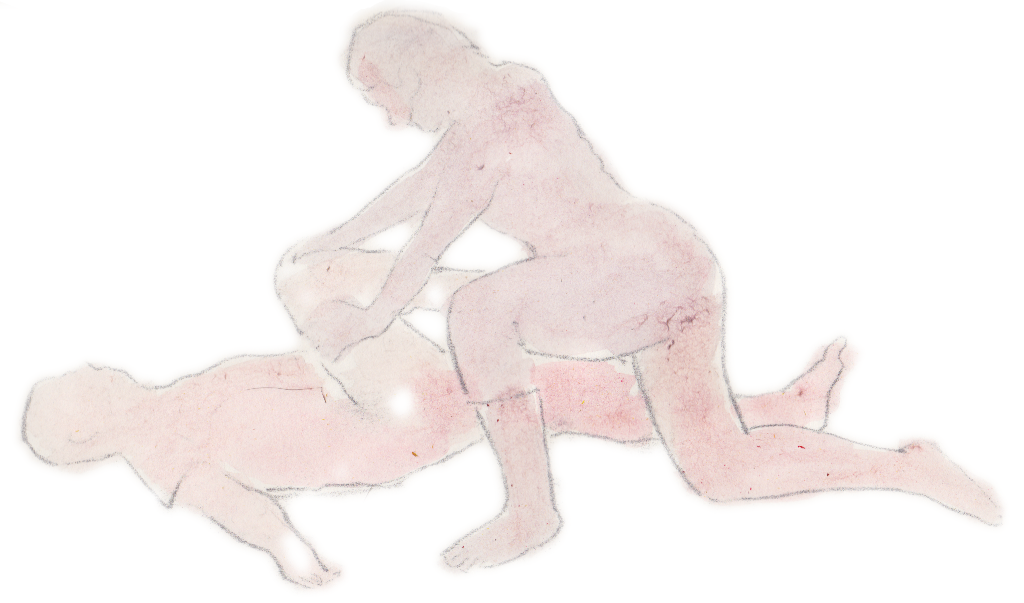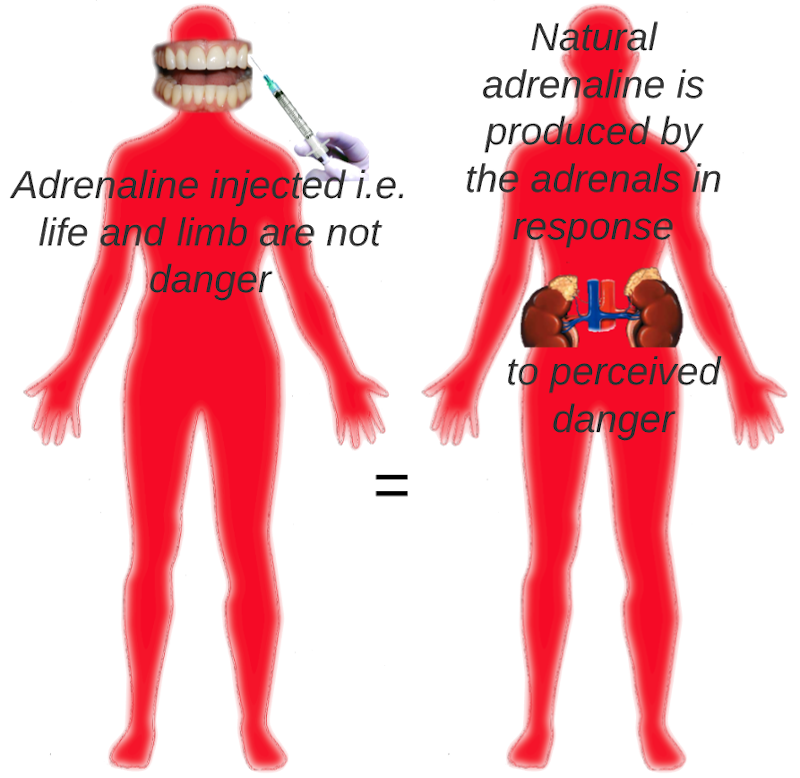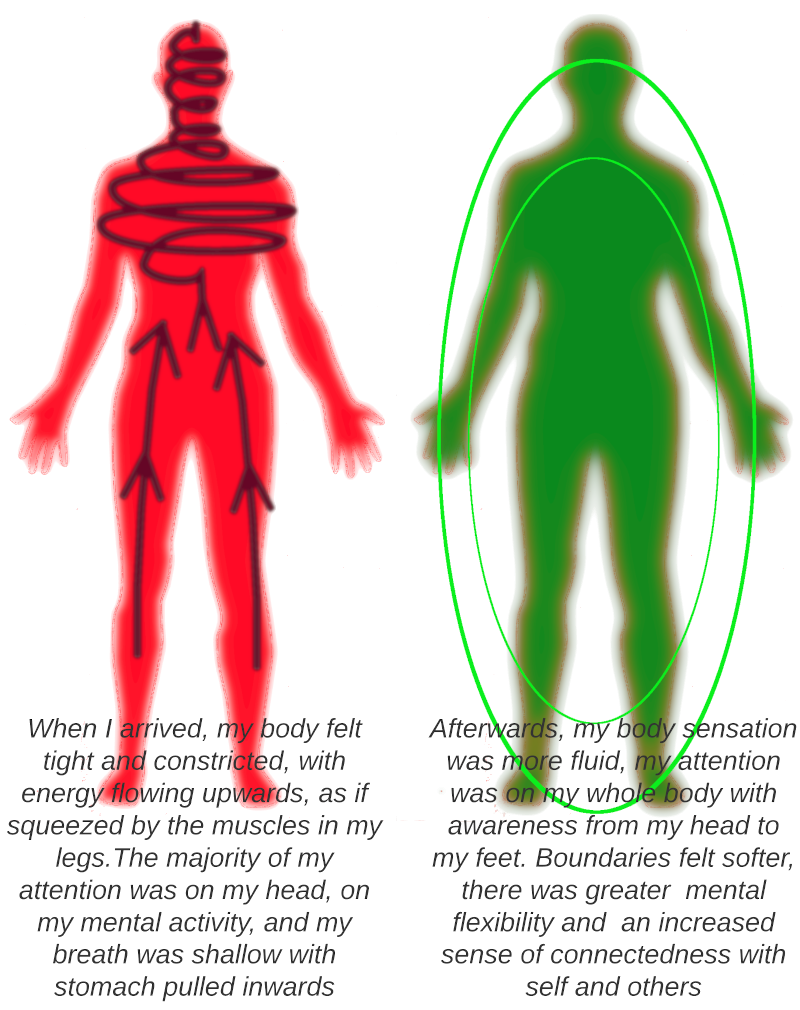Body to mind feedback – the vagus nerve
7 July 2019Why Bodywork?
For most of my life I believed that when I had a problem, its cause would be found in my mind and therefore the solution must be there too. Looking after my physical body was always important to me, but motivated by wanting to feel OK and more importantly wanting to look right, but that was it. It never occurred to me that the internal state of my body could have a significant and direct impact on how I saw the world, my relationships and myself.
Over the last 10 years, many experiences have inspired me to turn this belief system upside down. I have come to see the mind and body as a single, integrated system — to the extent that trying to make changes or address difficulties using the mind alone is like eating soup with a fork – it’s possible but there are much easier ways to do it.
When we work through the body, we access a powerful resource to support our transformation or to stabilise and ground our existing qualities and capabilities — and we often improve overall health in the process.

The body-mind connection is a complex and mysterious subject, but it’s not necessary to delve deeply into it in order to understand the effectiveness of bodywork. Two discoveries – one anatomical and one experiential – opened my eyes to the essential part my body plays in how I perceive the world and my resilience in the face of stressful or tricky situations.
* A racing heart, dry mouth, cold extremities, a light sweat or clamminess and a tremor are all signs that your body is in a fight-flight response. If your brain detects any or all of these physical signs, it will assume your body is correct and search for — and most likely find — a coherent explanation for your physical state. We usually think that these reactions are caused by the brain’s conscious perception of danger, but plenty of research* supports the idea that the reactions begin long before we have any conscious awareness that there is anything wrong.
The implication is that you can be scared before you know it – or put another way, you can be scared or stressed without knowing why you are reacting that way.
Hangovers, too little sleep, noise pollution, hormonal surges and a multitude of other factors may cause us to feel moody and under the weather and our diagnosis that a physiological condition is affecting our perception of the world is quite well established. However, this effect is not limited to temporary imbalances or the processing of toxins, it can become a chronic situation.
It is fairly well established that repeated stressors can result in an overproduction of adrenaline, a hormone and neurotransmitter involved in the fight-flight response**. If such a state becomes chronic, you are effectively in an ‘always on’ condition — primed for sources of stress i.e. threats to your physical/mental/social survival. In this way, your physiology affects your perception of the world and yourself. So it makes sense, in a therapeutic situation, to begin where the true source of the problem is — with the physical body — rather than with how the external world is being seen, which is as much a symptom as it is a cause. Massage treatments are a powerful tool for mitigating these kind of elevated stress responses.
(*) See Stephen Porges on Neuroception (PDF), which he describes as “a Subconscious System for Detecting Threats and Safety”, information on the enteric nervous system and Thinking from the heart – an article discussing the concept of the heart as sensory system.
(**) Society for Endocrinology: Adrenaline and from hormone.org (also from the Society of Endocrinology) “Adrenaline is an important part of your body’s ability to survive, but sometimes the body will release the hormone when it is under stress but not facing real danger. This can create feelings of dizziness, light-headedness, and vision changes. Also, adrenaline causes a release of glucose, which a fight-or-flight response would use. When no danger is present, that extra energy has no use, and this can leave the person feeling restless and irritable. Excessively high levels of the hormone due to stress without real danger can cause heart damage, insomnia, and a jittery, nervous feeling.”
(***) Will massage benefit my endocrine system? and Study shows frequent massage sessions boost biological benefits
A few years ago, after visiting the dentist, I was walking down a busy London street and a tourist brushed past me. I was convinced he was trying to mug me so I grabbed him, accused him of taking my purse and then pushed him away.
I realised what was going on, apologised profusely and all was well. But what happened?
Dental anaesthetics contain adrenaline (epinephrine) or substitute (the reason this is necessary is interesting). I remember that my heart was racing and I still felt on edge and a little shaky long after leaving the dentist surgery. With elevated levels of adrenaline and an activated stress response, my brain received the message that something was very wrong and that I should be on high alert. The tiny, inconsequential action of the tourist was perceived as a serious threat and I freaked out as if it was. I still reacted like this even though I knew that I felt strange because I had had an injection. In those first few seconds, being aware of the cause of my state made absolutely no difference to my behaviour; fortunately, I did come to my senses fairly fast and realise that it was dramatic — if short-lived — misreading of a situation.
This story provides an insight into how our physical state can influence our perception of the world. Chronically elevated stress (adrenaline and cortisol) hormone levels are a reality for many people, as described in this article here Mayo Clinic on Chronic Stress (over-production of adrenaline etc.)
It also made me realise how quickly things could go wrong – imagine if the tourist had been someone in an equally altered state?

I was having a treatment with my course instructor, Pascal Beaumart, and as usual, I had a lot of stories whirring through my mind, including an agenda for the session and some survival issues around money. We had talked about this for a short while which hadn’t alleviated any of the mental whirrings, but then we moved onto the mat to begin the bodywork and it was like Bingo! Suddenly, and without any effort, my focus had switched to the inside of my body and my mind went mercifully quiet so that I was fully present for and receptive to the treatment rather than focusing on my life outside. At that point I realised
I cannot be telling myself crazy stories and at the same time be conscious of the inside of my body.
For me, this was a revelation. Of course the thoughts came back after the treatment, but having had the experience of another way of being, I have continued to build on that – in fact, I see it as a skill that is learned during bodywork sessions, that become s resources that is always available to us.
On 28th February 1975, there was a horrific accident on the London Underground – the Moorgate tube crash. I was nine years old at the time and I was strongly affected by the story of a 19-year old policewoman who survived the crash but could only be removed from the wreckage amputating her left foot. After that I developed a fear and fascination of amputation – I remember lying on the beach with a towel over my foot imagining that that is what I would do if my own foot had been amputated.
For some reason, this story came to mind during the session and I told Pascal about my childhood fear of amputation. This lead to a conversation about our actual and symbolic connection to the ground and the flow of energy through the legs which inspired some intensive work on my lower legs, tapping on the shin bones and using harmonic motions on the lower legs and feet.
This had a surprising effect – it felt like it reconnected my feet to my pelvis and I gained a new level awareness and sensation in my legs.

The state of your body is paramount to your mental health. I don’t mean your weight or age or any of the usual yardsticks we use – I am not generally interested in the external appearance in the context of cultural norms. What concerns me during a treatment and beyond is the condition of the endocrine and autonomic nervous systems — the condition of your body as a whole which is what so profoundly affects our perception of the world, of ourselves and our inner, mental experience.
